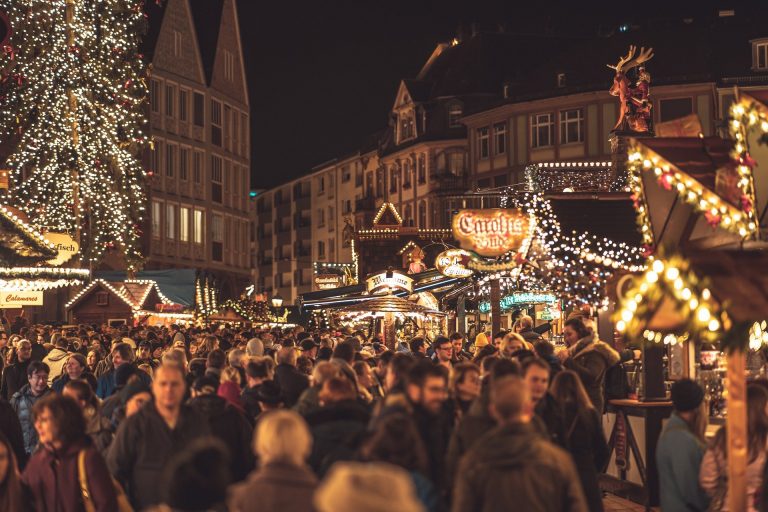The iconic Hamburg outdoor Christmas market will start segregating citizens based on whether they have been vaccinated against COVID-19 or not. The decision comes as Germany is grappling with high infection rates.
The Hamburg Christmas market is scheduled to open on Nov. 22 and will last until Dec. 23. The outdoor area of the market will be split into two, retail and food regions. Organizers plan on allowing every person into the retail area provided they wear face masks and comply with social distancing regulations. However, the food area will only be open to customers who have recovered from COVID-19 or are fully vaccinated against it.
Some other popular Christmas markets across Germany have been canceled. Authorities had earlier given the green signal for these markets to open before they became cautious. Chancellor Angela Merkel’s spokesperson asked regional officials to take steps to contain the “dramatic” increase in infections, which might have affected the opening of Christmas markets. Michael Kretschmer, state premier of Saxony, has asked for all such markets to be shut down.
Business groups have asked the government to allow the markets to open with entry only allowed to vaccinated individuals, much like what is being implemented in the food area of the Hamburg market. However, some traders are displeased with the government’s action.
“That is shoddy and irresponsible… He (Kretschmer) made a regulation himself and said that the Christmas markets are taking place. Based on this commitment, we started planning and made dealer contracts… That drives the Christmas markets to ruin,” Holger Zastrow, a market operator from Dresden’s Augustus market, said to Bild.
Success
You are now signed up for our newsletter
Success
Check your email to complete sign up
The rate of infections in the country has gone up in recent weeks. On Nov. 8, Robert Koch Institute, Germany’s national disease control center, stated that there were 201.1 new cases per 100,000 residents in the previous seven days, which is the highest level since Dec. 22 last year.
This has triggered alarm bells among health experts. Since Oct. 1, the number of daily new confirmed COVID-19 cases per million has risen from 96.13 to 400 on Nov. 11. More than 64 percent of the German population has been fully vaccinated since October.
“We’re worse off than we were a year ago… and we’re now facing a real emergency situation,” Christian Drosten, Germany’s leading virologist, said in a podcast. He predicts the country to see an additional 100,000 COVID-19 deaths if necessary protective measures are not taken. The government is apparently considering making booster shots a necessity. Federal Health Minister Jens Spahn recently stated that boosters after six months “should become the rule, not the exception.”
Meanwhile, Germany’s neighbor Austria is also taking harsh steps against the unvaccinated population. Chancellor Alexander Schallenberg recently said that a lockdown targeted at unvaccinated people is “probably unavoidable” and that such people will face an “uncomfortable” Christmas and winter.
“I don’t see why two-thirds should lose their freedom because one-third is dithering… For me, it is clear that there should be no lockdown for the vaccinated out of solidarity for the unvaccinated,” Schallenberg said.
He called the country’s 65 percent full vaccination rate “shamefully low.” Authorities might also consider making vaccination compulsory in some professions.


















